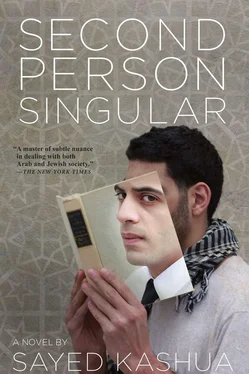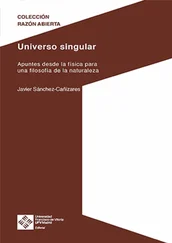I remember, for instance, the first time she asked me to join her for a movie at the cinema and dinner at Cielo, her favorite Italian restaurant in the city. Ruchaleh looked beautiful to me that evening — maybe because I saw her smile for the first time and maybe because I saw her cover a laugh with the back of her hand. I think she laughed after I asked her if she was doing all this for me because of her left-wing ideology.
“You know what,” she said, and a long while passed before she was able to stop laughing. “You Arabs really are idiots.”
That first time out to a restaurant was when Ruchaleh taught me how to lay my napkin on my lap while eating, how to keep my elbows off the table, how to dab at my mouth with a napkin, how to hold a glass of red wine and how to hold a glass of white wine, and how to handle the different cutlery.
“Your plate is not a rowboat,” she said when I angled my fork and knife against the sides of the plate, and she showed me how to position the cutlery when taking a break from eating and how to arrange it at the four o’clock position when I was through. “There are some things you just have to know,” she said, “if you want to be a part of the family.”
Ruchaleh’s family was from Germany. They hadn’t been through the Holocaust, she said, at least not her parents, who had the brains to immigrate to this stinking country in the early thirties. But she didn’t like talking about her parents, because “they’re not really your grandmother and grandfather.” I gathered from our conversations that she had nothing but scorn for tradition, nationalism, religion, roots, roots trips, and sentences like “He who has no past, has no future.” She believed that the Arabs did a bad job of impersonating the Zionists, who did a bad job of impersonating the European nationalists of the early twentieth century. Nor did she believe in identity, certainly not the local nationalistic version of it. She said that man was only smart if he was able to shed his identity.
“Skin color is a little hard to shed,” she said, “it’s true. But the DNA of your social class is even harder to get rid of.”
When I told her at first that I had no intention of applying to Bezalel under her son’s name, she laughed and said, “Why not? It’s like an organ donation. Around here identity is like one of the organs of the body and yours is faulty. You might as well admit it, being an Arab is not exactly the peak of human aspiration,” she said, laughing, and I could tell from the tone of her voice that she had not meant to offend me. “And what you have here,” she continued, “is an organ donation that could very well save your life.” I don’t think Ruchaleh was trying to convince me of anything then. She could already tell how badly I yearned for it. I think all she wanted to do was to make clear that if there was going to be any trouble, it would not be from her.
With a ding the digital screen flipped to number 624. I got up and walked toward the agent just as the bell sounded again and the screen jumped forward to number 625. A woman who had gotten up after me hurried over to the agent, racing me to the window, even though it was clear that she was cutting ahead of me. I was willing to give up my number, perhaps the whole procedure.
“Are you 624?” the agent asked me over the head of the other woman, who had already sat down in the chair and was saying, “But it already switched to 625.”
“Ma’am,” the agent said. “He’s ahead of you.”
“Doesn’t matter,” the woman one booth over said. “I’m free.” I sat down in front of her.
“How can I help you?” she asked.
“I’d like to update an old ID card,” I said, and I put Yonatan’s worn card on the counter.
“These days you can just do that in the mail, you know?”
“No, I didn’t know that,” I lied. Of course I knew—before coming to the ministry I’d found out everything there was to know about updating ID cards. I knew it could be done through the mail but I wanted to do it in person. I look like Yonatan, dress like Yonatan, and there was no way some clerk in the Interior Ministry was ever going to be suspicious of me, straight out of Beit Hakerem, in expensive clothes that were made to look cheap and a T-shirt with a picture of an obviously hip band she had never heard of. It was much safer than sending it in the mail. What I was afraid of was that the disparity between the two pictures, the wild-haired Yonatan and the short-haired shot of myself from the day before, would be too great to issue an ID card through the mail and that then I would be asked to come in to the ministry in person, already a suspect.
“Yonatan?” the clerk asked.
“Yes.”
“I was sure that you weren’t Israeli,” she said, paralyzing me.
“Why? Is something wrong?”
“There was no reason to be so nice to that lady,” she said under her breath, taking one of my passport photos and starting to fill out the details. “People here have no shame. Just say, ‘It’s my turn.’ What, you don’t know how to deal with people around here? Only force, that’s the only language they understand.”
On the way out of the office, with a temporary ID card under the name Yonatan Forschmidt in my pocket, I dropped a renewal application for Amir’s ID in the mailbox. Attached to the paperwork were two pictures of Yonatan that I had taken myself and touched up on the computer. Everything would stay the same, only the pictures were swapped.
I left the nationality line blank on Amir’s application, as many Arabs did now that it was no longer mandatory. This had to be done to prove that all citizens of Israel are equal, Arab and Jew alike, but once it went into effect, a new number code was introduced to all official ID documents and it told whoever needed to know the ethnicity of the card-holder. After all, names were not enough: Arabs and Jews sometimes had the same names — Amir, for example — and it had become trendy of late for Arabs to give their kids Jewish names, or “universal names” as they preferred to call them.
I was not worried about updating Amir’s ID via the mail. Swapping Yonatan’s picture for my own would not arouse anyone’s suspicion: even the lowliest clerk at the Ministry of the Interior knows that no one in this country wants to be an Arab.
OXIMETER
Late that same Thursday night I called Noa.
“If you’re not working,” she said, “then I’m free. It’ll be the first time I get to see you after nightfall. I was starting to think you turned into a pumpkin at midnight.”
I hailed a cab on Herzl Boulervard and took it to her house on the corner of Agrippas and Nissim Behar in Nachlaot. I went up three flights of stairs to the apartment Noa liked calling “the studio.” She’d moved in during the summer between junior and senior year. Before that she’d lived with two roommates in a bigger apartment in the area, but that came to an end when one of the roommates began inviting over a rabbi with a white kippah and a pervert’s grin. Noa said she hated all the Rainbow and Shantipi crap.
She did not hit the India travel circuit after the army. “Even if I had gone to the army, I wouldn’t have gone to India,” she said. She had a hard time understanding how it was possible to beat the shit out of Arabs all through army service and then run straight into an ashram and feel all pure. Nor had she gone to South America. After high school she went to Europe, then she spent a month in New York City, and then she started school in Jerusalem.
She hated her hometown, Hod HaSharon. The place is disgusting, she said. Afterward she lived in Ra’anana and she detested it, too, said it was even more disgusting. Her father was a doctor but he didn’t work in medicine. He started his own company, importing medical supplies. Her younger brother, the “king of the nerds,” as she called him, seemed poised to follow their older sister, who was also a doctor and worked with her father.
Читать дальше












